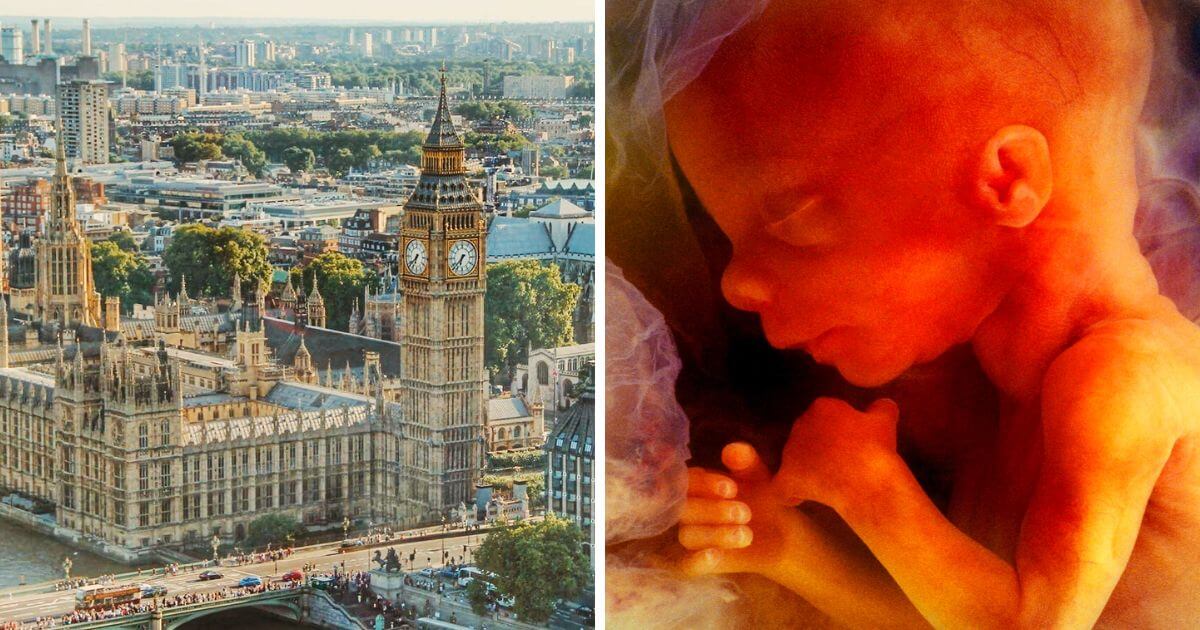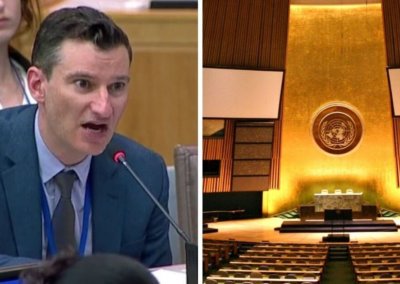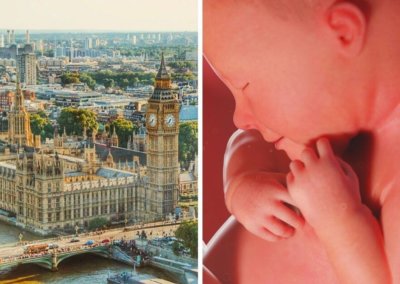This afternoon, MPs voted by 297 votes to 110 in support of an amendment to the Public Order Bill to introduce ‘buffer zones’ around abortion clinics nationwide.
Hundreds of women have been helped outside abortion clinics by pro-life volunteers who have provided them with practical support, which made it clear to them that they had another option other than going through with the abortion.
If the Public Order Bill passes all its stages in the Commons and Lords, as is likely to be the case, given it is a Government Bill, the vital practical support provided by volunteers outside abortion clinics will be removed for women.
The Conservative Government did not whip against the amendment, which meant that they did not ensure that their MPs voted against the amendment. In 2021, a similar amendment was brought forward by Rupa Huq MP to a Government Bill, but for that amendment, the Government whipped against it on the grounds that it was a public order issue.
If the Government had done the same this afternoon and whipped against this amendment, it is very unlikely that it would have passed.
Constituents around the country can find out where there MP voted on the amendment on the Where Do They Stand voting record platform.
MPs speak in opposition to law change
In the debate this afternoon, a number of MPs spoke in opposition to the amendment.
Carla Lockhart MP emphasised that “We already have laws on the statute book to prevent harassment and maintain public order, including laws in place to ensure women are not harassed or intimidated outside abortion clinics”. She also shared the testimony of women who had been helped by volunteers outside abortion clinics.
She referred to the story of one mother, Alina Dulgheriu, who explained that “‘her beautiful daughter would not be here today’ without support from a volunteer handing out a leaflet outside the clinic”. Lockhart also recounted the story of another woman who “was ‘under immense pressure’ to go through with her abortion. But on her way into the abortion clinic, a woman handed her a leaflet and simply said that ‘she was there if [she] needed her’. Her conversation with this woman gave her the support and confidence she needed to keep her baby”.
Fiona Bruce MP pointed to the amendment’s broad implications that “contravenes the basic principle of certainty of the rule of law”.
She compared handing out leaflets in front of an abortion clinic to an MP handing out leaflets at election time – Parliamentarians would be “aghast” if their leafleting were met with a fine and imprisonment, and should equally be “aghast” that the amendment targets “people with faith-based views”. She pointedly asked, “When did it become against the law in this country to pray?”
Sir Edward Leigh MP expressed surprise that “we are debating this again” for “[i]t was only in 2018 when the Home Office concluded there was no need to introduce so-called ‘buffer zones’”.
He stressed that before Parliament “rush[ed] to create new laws … it is only right that the Government expects the police and local authorities to use their current powers appropriately and where necessary”. Sir Edward urged Parliament to turn to existing laws to address any incidences of harassment outside abortion clinics.
Right To Life UK spokesperson Catherine Robinson said: “Hundreds of women have been helped outside abortion clinics by pro-life volunteers who have provided them with practical support, which made it clear to them that they had another option other than going through with the abortion. This passing of this amendment means that the vital practical support provided by volunteers outside abortion clinics will be removed for women and many more lives will likely be lost to abortion”.
“While the majority of the MPs who voted for the amendment were Labour MPs, it is important to note that the Conservative Government did not choose to whip on this issue, which meant that they did not ensure that their MPs voted against the amendment. In 2021, a similar amendment was brought forward by Rupa Huq MP to a Government Bill, but for that amendment, the Government whipped against it on the grounds that it was a public order issue. If the Government had done the same today, and whipped against this amendment, it is very unlikely that it would have passed”.











